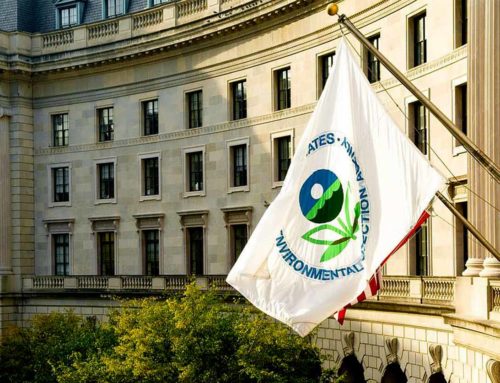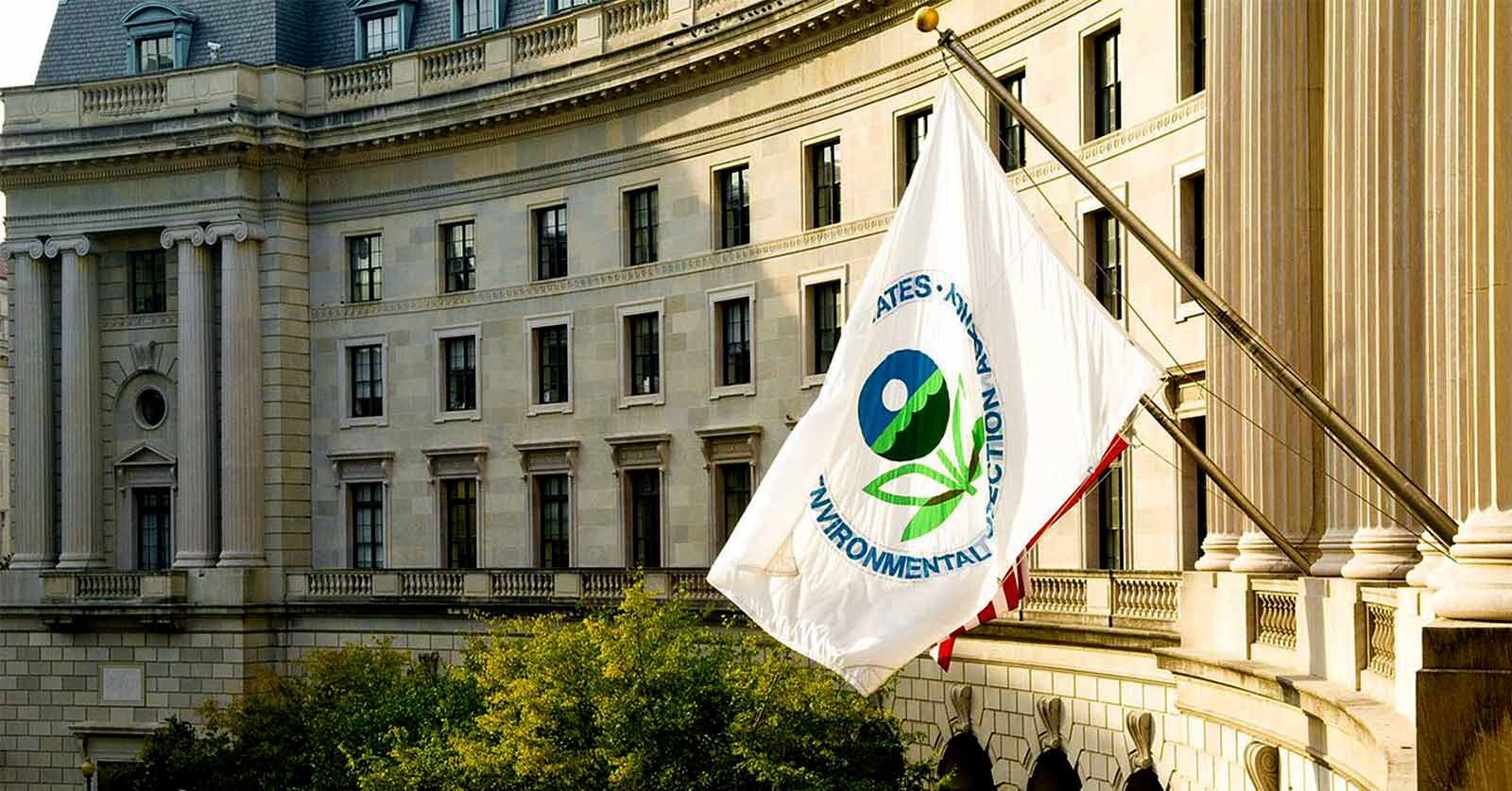Catch up on all the others here. Subscribe through Apple or Spotify.
READ THE TRANSCRIPT
Steve Ellis: Hello, hello. Welcome to all-American taxpayers seeking common sense. You’ve made it to the right place. For over 25 years, TCS, that’s Taxpayers for Common Sense, has served as an independent non-partisan budget watchdog group based in Washington, DC. We believe in fiscal policy for America that is based on facts. And our team at TCS works to ensure that taxpayer dollars are spent responsibly and that our government operates within its means. It’s literally our mission. We believe in transparency and accountability, that no matter where you are on the political spectrum, no one wants to see their tax dollars wasted.
It’s February 2021. And today we launched this brand new podcast, Budget Watchdog: All Federal, as a digital vehicle to help share the insights, research, and recommendations developed by our team and leaders in this space to taxpayers across the nation. On this inaugural episode of the Budget Watchdog: AF, we’re going to take a look at the newly-initiated pause on federal oil and gas leasing instituted by the Biden administration. To that end, I’m joined by my longtime colleague, Autumn Hanna, Vice President here at TCS. A big part of her role as leading our energy and natural resources work.
Autumn, welcome to the podcast.
Autumn Hanna: Thanks, Steve. It’s great to be here on our first podcast, pretty excited to be doing this today.
Steve Ellis: Great. So let’s get started. I know the federal oil and gas leasing system, from our perspective, is broken. We’ve been focused on the mismanagement and poor return on investment for taxpayers here for a long time. So Autumn, can you help our listeners better understand the history here?
Autumn Hanna: Sure. You’re right, Steve, this is something we’ve been working on for a long time and been tracking. And on January 27th, the Biden administration went ahead and issued an executive order announcing a pause on oil and gas leasing on federal lands. For us, we really thought this was the right move because we have been noting the problems within the system for years and really exposing the places where taxpayers are losing.
Autumn Hanna: So we’ve been saying we should step back, pause on leasing, and reform the system before we lease any more federal land. And that’s really because taxpayers at both the federal and state level have lost billions of dollars to our federal oil and gas leasing system. We have outdated laws and policies that frankly haven’t kept pace with oil and gas production. And unfortunately, for taxpayers, we’ve seen these flaws on full display over the last four years because we had even faster movement on leasing of federal lands and offering more land as quickly as possible, even during the pandemic.
Putting these large stretches of federal land on the leasing auction block over these last four years really flooded the market, drove down bidding, which was already in decline because of our oil glut. And by 2019, the average federal lease sale was more than double the acreage we had seen in the eight years prior, yet the bid per acre was down by less than half of what it had been. Bids slid even further in 2020 to just a third of the average bid from 2009 to 2016. So all of this really spells losses for taxpayers and lost revenue. And that’s why we welcome this pause.
Steve Ellis: Imagine that. The law of supply and demand, you pump up the supply of leases and then you’re getting smaller returns. It seems common sense that that would not be the best approach for taxpayers. Will the pause on the new lease sales affect current oil and gas production?
Autumn Hanna: Despite what you may hear, especially from those in industry, this pause won’t affect production activity. So this really isn’t a cause for alarm. For the last four years, we’ve leased almost 5 million acres and very few of those have entered production yet. And even before the Trump administration, we had millions of acres of federal land leased for the purpose of oil and gas development, but had yet to be developed. So about 25 million acres under lease at the end of 2019, to give you some scale there, and 11 and a half million acres of those were not producing yet. So our oil and gas supply is outpacing demand and the [inaudible 00:04:31] is keeping prices low. And really, state and federal taxpayers won’t see much drop in revenue because most of our revenue comes from oil and gas leases that are producing. There will be a little impact on bid revenue, but bid revenue is already down significantly, so taxpayers were already losing. So it makes much more sense to step back, reform the program, and fix it so taxpayers get the fair return we deserve.
Steve Ellis: Can you tell me about some of the other areas we want reform? I know that we’ve worked with the New York Times and other outlets exposing this so-called day after auction giveaways and some other issues with the program.
Autumn Hanna: That’s right, Steve. Non-competitive leasing overall is a major problem. And our oil and gas companies have been taking advantage of this broken system and being able to really benefit from this non-competitive leasing. So we have set our minimum bid per acre at $2. That’s a rate that was set in the late 80s under President Reagan. It’s one that we definitely need to step back and adjust, at least to inflation.
Autumn Hanna: Nevada is a place where we’ve seen this non-competitive leasing really run rampant. We have over 90% of the land leased there not even entering production. So we’re leasing land, it’s not entering production, and it’s because it’s so cheap. In the last few years in Nevada, roughly 80% of the acres leased at auction went for this $2 per-acre minimum bid. And over the last decade, 90% of those were sold for less than $5 per acre.
But you can also exploit the system by coming in the day after, so nominating land for auction, coming in the day after for no bid at all, and securing that land. So this is this non-competitive leasing loophole that we’ve worked with the New York Times and many other press outlets to expose and bring attention to. And one case our work uncovered that one company had dominated almost 70,000 acres of land for lease sale in Montana and didn’t step into bid anything at auction, and then came in the next day to secure over 132 leases without paying any bid at all. So a big loss for taxpayers because of this broken system and this loophole, one that definitely needs to be fixed before we start leasing again.
Steve Ellis: So Autumn, after all of this has been pointed out, is there any activity on the Hill, or is there somebody picking up the mantle trying to do some of the reforms tackling some of these issues?
Autumn Hanna: Last Congress, we had a bill with Senator Tester addressing non-competitive leasing and really going after this issue. And we are definitely looking to move a bill this Congress and have action taken to address this leasing loophole. It’s outrageous that it’s still on the books. And we think that now that we have this pause on leasing again, and we’re taking this time to really look into the program overall and fix these pieces of it, that this non-competitive leasing loophole is one that definitely needs to be addressed.
Steve Ellis: Autumn, you bring up a good point, too, in the fact that with the new Congress, everything resets. Legislation that was on the half-yard line is back at square one, to mix some metaphors there. So that is something they’ve got to kind of move the ball forward on this. What do federal and state taxpayers get, or not get, from the federal oil and gas program?
Autumn Hanna: The biggest loss to taxpayers in the current system is the royalty rate, which hasn’t changed for over 100 years, so we’re looking at a 12.5% royalty rate for taxpayers. And that’s the percentage the taxpayers get for the oil and gas extracted off federal lands, so we get a percentage of the value of that sale. And that’s something that any landowner would get for anything off their private property, a royalty, that’s a common way to receive revenue. And it’s one that we think really needs to be addressed, looking at that century-old rate of 12.5%. And we have calculated, just in the last 10 years, we’ve lost over $12 billion by not updating that rate for onshore oil and gas to match what the current rate is for offshore oil and gas. So offshore oil and gas, for the most part, gets at 18.75% royalty rate.
Autumn Hanna: And so that rate on offshore is one that we have pointed to, to say we want parity for onshore and we want to get 18.75% at a minimum on federal lands. That gets us that $12 billion figure. But that isn’t even as high as we think would make sense for the market in many cases. Private and state interests charge royalties as high as 25%. And oftentimes, they’re charging and getting 25% or 20% royalty rate for land that’s adjacent to the federal land that’s producing, so really just shortchanging federal taxpayers. And the important part of this for the state, too, is that we split that revenue onshore with the state. So 50% of that revenue from federal land in states goes to that state. So in Colorado, half of that royalty revenue on federal lands is going to Colorado, in New Mexico to New Mexico.
And so this is important revenue for federal coffers, but also for state coffers. And we’ve looked at leasing activity in Colorado, Montana, Utah, Nevada, New Mexico, all of those states specifically where these are our highest producing oil and gas states. And we’ve identified billions of dollars, over $6 billion in the last 10 years in lost royalty revenue, just for the states in those places. And that’s because of these below-market royalty rates. This is money that’s going to local budgets, so schools and other important needs for these places, and it’s also important to the federal treasury. But we want to make sure that folks recognize that raising these rates would have benefit at both the state and federal level.
Steve Ellis: This is real money for these communities and for these states, that’s a really important point, and also should be why people should be pushing to have their elected officials change these policies. You mentioned the 25%, and if I recall, isn’t the state of Texas a known anti-oil and gas industry state? Don’t they have a 25% royalty rate?
Autumn Hanna: Yes, Texas does have a 25% Realty rate, and we all know that Texas hates oil. No, I think that’s the point that really makes sense here, is that we can raise royalty rates and it doesn’t have to negatively impact production and it can get us more close to a fair return and address this broken system. Frankly, we just haven’t updated it. So why would someone need to pay more, or want to pay more, if you were the oil and gas industry? So this is something that has fallen by the wayside and we want to make sure it’s an important issue that gets addressed in this new administration.
Steve Ellis: Speaking of this new administration, do they need to rethink the role of the Bureau of Land Management at the Department of Interior that manages these things?
Autumn Hanna: Absolutely. I think overall, we really want this administration to help shift the perspective at the Bureau of Land Management to one that is first and foremost protecting the taxpayer interests and not representing and protect the industry interests. It’s industry’s job to represent themselves, and we know the oil and gas industry is doing a good job of that. And they’re taking care of their interests and needs. And we need the Bureau of Land Management to make sure that they are protecting the taxpayer interests. They work for us. It is their job to ensure we are getting a fair return for the natural resources that we collectively own. We all have a stake in this and it’s important to make sure that the Bureau of Land Management remember what their job is.
But this is not a new problem. These are systemic problems. The Government Accountability Office has highlighted for years that our royalty collection system was open to waste, fraud, and abuse. We’ve had [inaudible 00:11:22] of corruption in the royalty program before. This is not something that is brand new. And all we saw was that all of these broken systems, again, brought to light as we moved quicker to lease lands these last four years. So we really want the Bureau of Land Management to get back on track and to, frankly, get better overall at protecting taxpayers.
And we really think that the good news is that these problems can be fixed. Putting a hold on leasing is a good first step. The Department of Interior can really increase transparency, they can raise royalty rates. They can reinstate rules like the Methane Waste Rule, which helps ensure that taxpayers get royalties on leaked, vented, and flared methane gas from federal lands and decreases overall waste while in production. So it helps us capture that gas and get a royalty on it. And the new administration can really look at the internal systems and help move towards reform. Frankly, we don’t think it’s a good idea to leave money on the table. And we all know that today we need all the revenue we can get and we can’t afford to lose this valuable revenue.
Steve Ellis: So there you have it. Autumn Hanna, Vice President of Taxpayers for Common Sense, the lead on our energy and natural resources work, first guest on our inaugural Budget Watchdog: All Federal program. Thanks a lot for being here.
Autumn Hanna: It’s been a pleasure. I’m very honored to be the first guest.
Steve Ellis: Coming up next time on Budget Watchdog: All Federal, exercising oversight and demanding transparency. Join TCS policy expert Josh Sewell as we make the case for a quick enactment of the bipartisan Congressional Budget Justification Transparency Act. Thanks for listening to the inaugural Budget Watchdog: AF podcast. I hope you’ll subscribe and share this episode with friends and colleagues. We’re always seeking your input, suggestions, questions, and help. So send your emails directly to me at president@taxpayer.net. Until next time, we’ll keep reading the bills, highlighting wasteful programs that poorly spend our money, and shift long-term risk to taxpayers.














Get Social